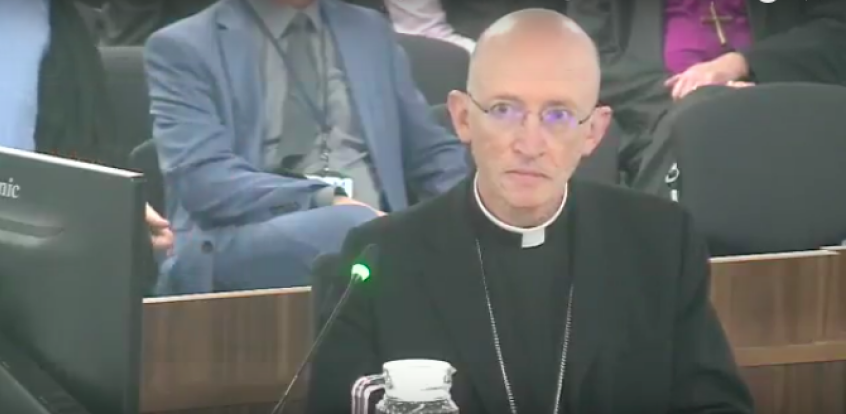Some clergy still consider criminal record checks for child abuse a 'slur' on their character, and would rather resign than face basic background checks, a bishop admitted today.
Martin Warner, the bishop of Chichester, revealed he was told the area was a 'basket case' for child sexual abuse before he was appointed in 2012. He told an inquiry into how the Church of England handled abuse allegations the 'process of culture change' was ongoing and some clergy still failed to take safeguarding seriously.

The confession appeared to call into question the Church's insistence that it had drastically improved its approach to safeguarding and had rolled out training across it's 42 dioceses.
Warner said he was 'shocked' to be treated with hostility when he first arrived as bishop in 2012 because parishioners 'believed the Church had mistreated' Peter Ball, the former bishop of Lewes, who was later found guilty of a string of historical sex offences against 18 teenagers and young men in 2015.
'It is clear to me there had been a historic bias in the diocese in favour of adults in positions of power and authority,' Warner told the inquiry. 'This has led to an unwillingness to take allegations of sexual abuse made by children or by adults sufficiently seriously.
'It reflects a wider social attitude of deference, a culture of deferring unduly to those in power and a culture of deference and defensiveness,' he added.
In revealing written evidence to the inquiry, Warner admitted: 'The diocese compounds the lifelong damage of child sexual abuse by our own thoughtless pride and arrogance as an institution.'
He told the inquiry: 'I think the pride and arrogance can sometimes stem from a genuine commitment to the Church and that there are aspects of that which are positive. But it can also blind us to its real failings. I think we have to note that.'
He went on: 'In meeting survivors it was very clear to me that this was how it felt for them. It is one of the things I think we have been bad at and I'm not at all sure that we are as yet as good about this as we should [be].'
It comes after Fiona Scolding QC, lead counsel to the inquiry which is holding three weeks of hearings into the diocese of Chichester as a case study for the wider Church of England, said priests in some parishes had resigned their roles rather than face 'criminal records and vetting and barring checks'.
'You will hear of parishes where individuals resign rather than face such checks, not because they have perpetrated any criminal offending, but because they consider that it is a slur on their character to even be asked such questions,' she told the inquiry in her opening statement last week.
Warner appeared to confirm this in his evidence on Wednesday morning.
'We are still going through the process of culture change and for many people, I'm sorry to say, the requirement to take a DBS cheek is interpreted as "are you accusing me of abusing children",' he told the inquiry. 'I think we are still building a sense that actually this is a welcome process whereby we are not accusing you of anything but we are being able to make a statement about our confidence and determination to be a safe place.'













